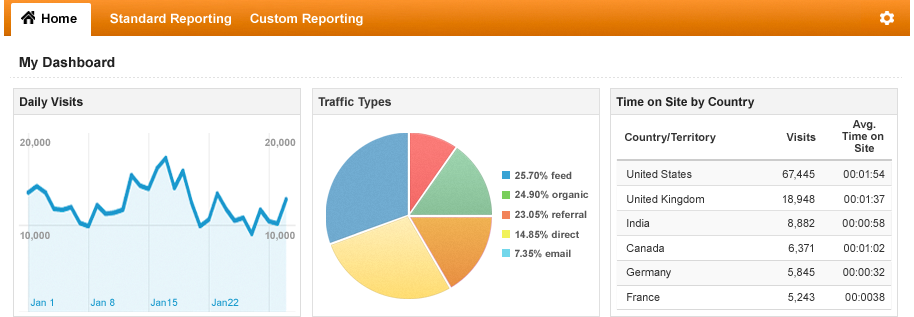Measuring the Success of Your Website
 A couple of weeks ago Chill Insurance celebrated the launch of its responsive website. The responsive design means that the website will adapt to your device e.g. mobile, tablet, PC or laptop to provide the best possible viewing experience.
A couple of weeks ago Chill Insurance celebrated the launch of its responsive website. The responsive design means that the website will adapt to your device e.g. mobile, tablet, PC or laptop to provide the best possible viewing experience.
When you consider the explosion of mobile and tablet traffic over the last 12 months, a responsive site is no longer a ‘nice to have’, but a very real commercial imperative.
The website was months in development and took weeks of fine-tuning and during this exciting period, figuring out ways to measure the new site were never far from my mind.
For many businesses a website is the shop front that never closes. If this sounds like your organisation then the ability to be open and transact business when your customers want to is hugely important and that’s why you need to carefully define success (with all your stakeholders) and select the right metrics to track it. After all, if you don’t know what you’re measuring, you won’t know if you’re winning.
So what should you measure?
That’s a difficult question and in all honesty will be answered differently by each business, but I hope this post acts as a catalyst for discussion.
In order to set the measurement wheels in motion I would recommend that you view the success of your website through the framework of Outputs, Outtakes and Outcomes. To recap, Outputs are the low hanging fruit and add context, rather than insight. Outtakes go somewhat deeper and show the kind of thing visitors get up to on your site. Outcomes are measured over a longer term, require greater resource to measure, but most importantly are linked back to business objectives. This is where the good stuff is.
I would also suggest adopting a Balanced Scorecard approach and assign a percentage weighting to each of the Outputs, Outtakes and Outcomes, with the latter having the most weight. You can then set weighted KPIs which you can measure each month to understand how your website performed out of 100%. For example, Outputs could be worth 20% of the Scorecard, Outtakes 35% and Outcomes 45%. This exercise will help you focus on the most impactful activity and move away from low-value contextual metrics, such as web visits towards high-value insightful ones, like sales and leads. It’s these figures that will get your board’s attention and lead to an increased marketing budget.
Without wishing to labour the point, it’s stupid looking to increase web traffic by 25% if sales don’t increase. If you focus too heavily on Outputs you’ll employ the right tactics to hit the wrong KPI, when you should be focussing on Outcomes and looking to drive results with greater business value.
At this stage I should point out that Google Analytics provides you with lots of data and is exceptionally powerful, but you’ll need to have business data e.g. sales, leads and conversions being fed into your dashboard. This is the only way you’ll be able to accurately measure digital activity against business objectives. If you don’t have business data being fed in, you’re going to be relying on guesswork and wild assumptions, such as the classic ‘more web traffic will result in more sales’, when for example, you could be looking at ways to convert more of your existing web traffic into sales.
Below are web measurement metrics I’ve incorporated into the framework of Outputs, Outtakes and Outcomes which perhaps make the crux of this post clearer (sometimes an image really is worth a thousand or 614 words).
What metrics do you use to measure the success of your website? I’d be delighted to continue the discussion in the comments section below.














